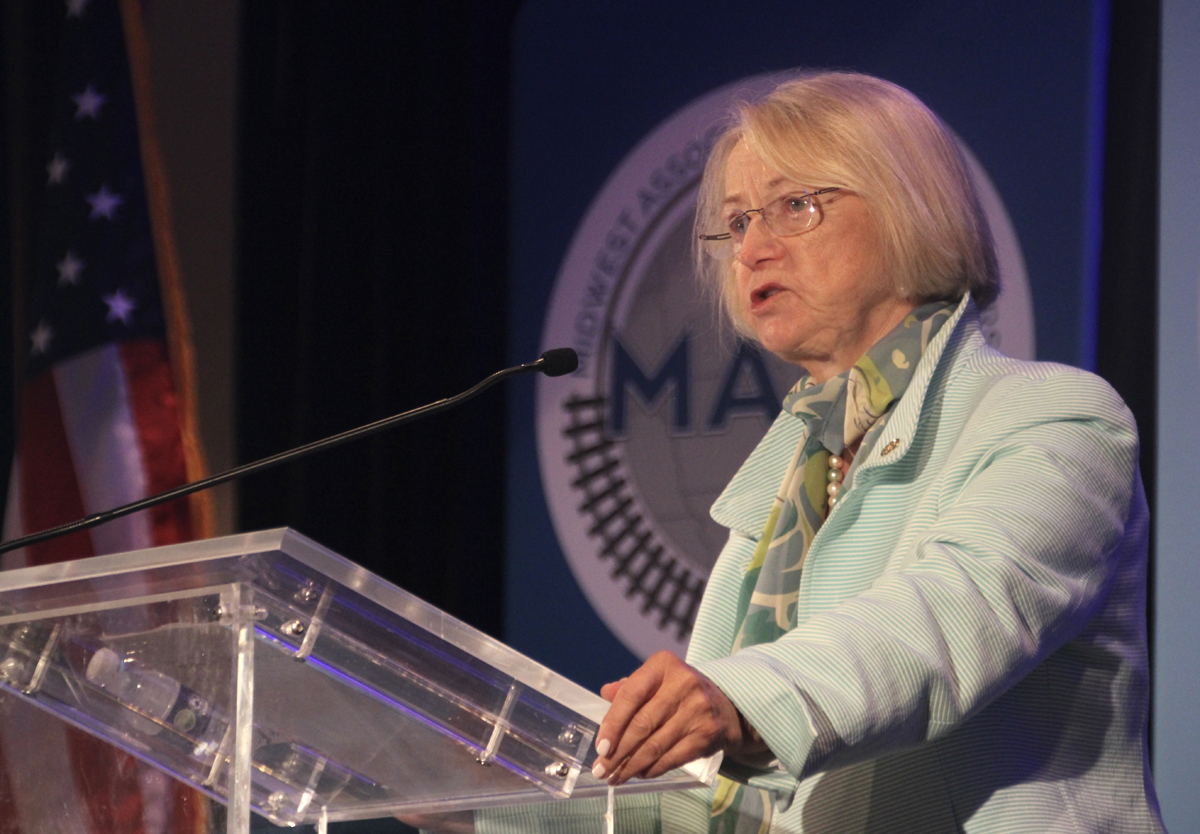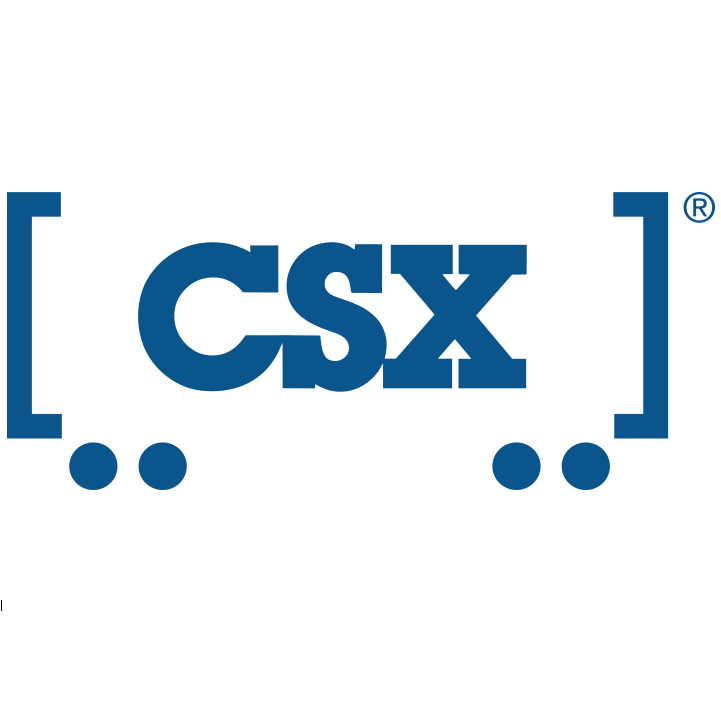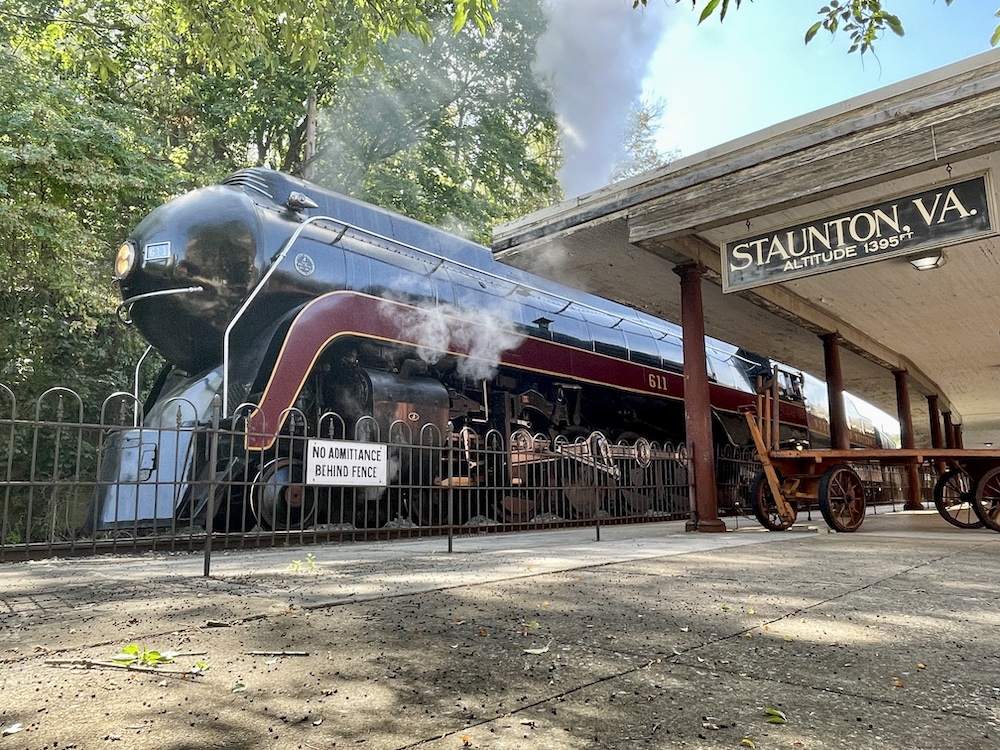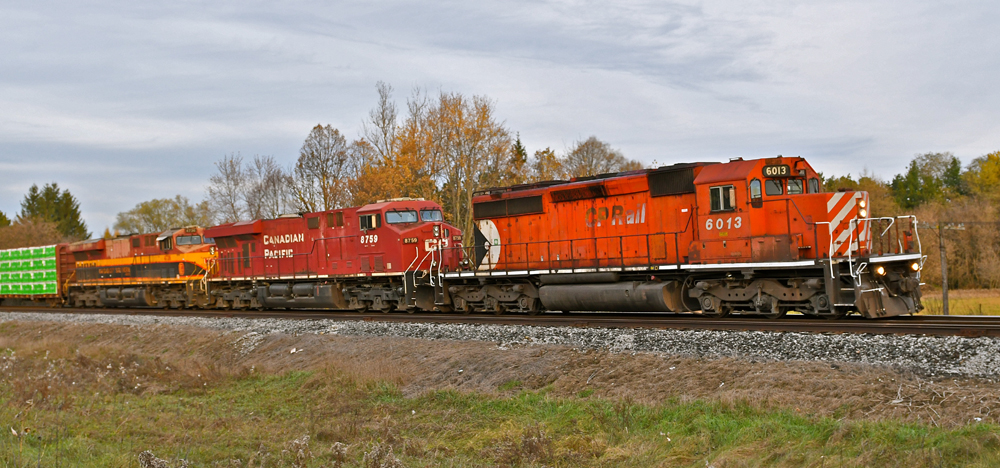
The Battle for Kansas City Southern, culminating in Canadian Pacific’s triumph over Canadian National, is Trains’ top railroading story of the year.
(Editor’s note: This may have seemed like a foregone conclusion, but balloting was close, with this story receiving just one more first-place vote and nine more points than the No. 2 story.)
Stage was set with 2020 approach by investor groups
The seeds for the Canadian Pacific-Kansas City Southern merger were planted in the summer of 2020, when a private investor consortium sought to take the company private.
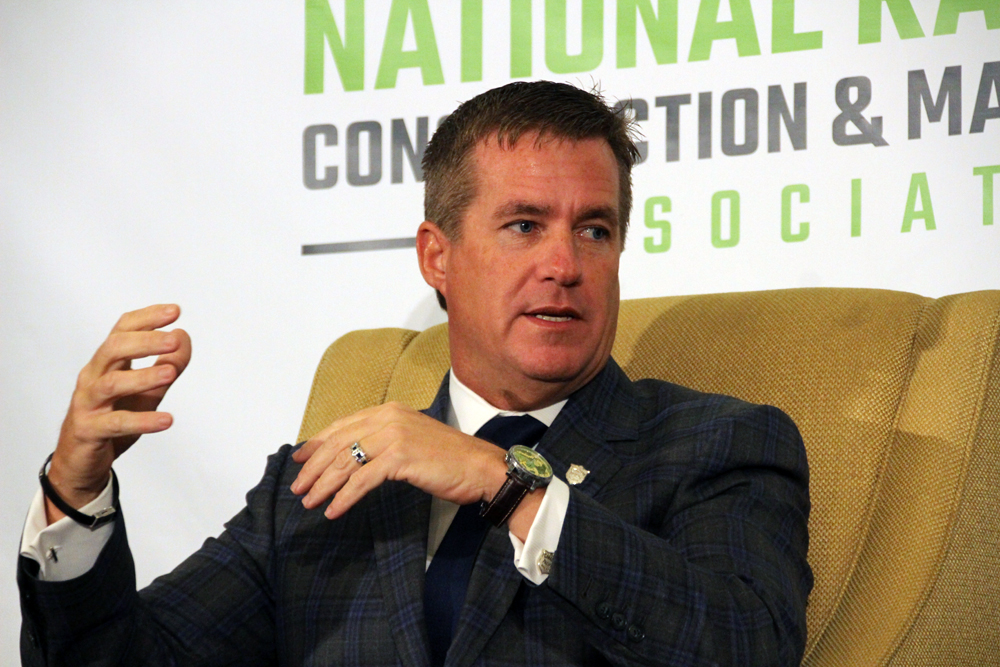
News reports that Blackstone Group and Global Infrastructure Partners wanted to acquire KCS for $21 billion prompted CP CEO Keith Creel to call KCS CEO Pat Ottensmeyer in August 2020 to propose a merger of equals. Such a deal, Creel said, would face the least amount of regulatory uncertainty because it was an end-to-end merger that would unite the two smallest Class I railroads.
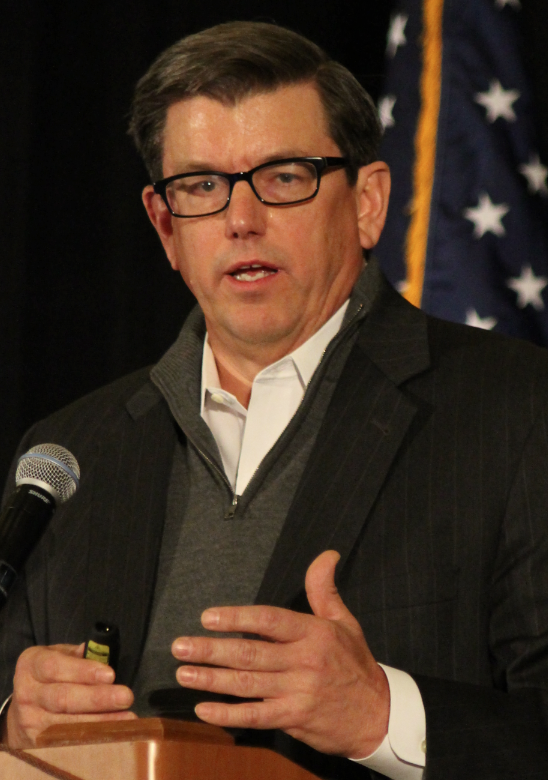
KCS considered dueling merger offers from CP and an investor group identified only as “Party A” right up until March 2021. On March 20, KCS accepted CP’s $29 billion offer and their deal for the first merger of Class I railroads in two decades was unveiled the next day.
But CN was waiting in the wings. It submitted an unsolicited $33.6 billion offer for KCS on April 20. On May 21, KCS terminated its merger agreement with CP and accepted CN’s offer. “Overall, we are the better bid, the better partner, the better railway, and the best solution for KCS and for the North American economy,” CN CEO JJ Ruest said.
Why all the interest in KCS? The 6,700-mile railroad’s north-south main line stretches from Kansas City, Mo., deep into Mexico. Its cross-border traffic has doubled since 2012 and shows no signs of slowing down as intermodal, automotive, and refined products traffic all continue to grow. The pandemic has laid bare an over-reliance on manufacturing in Asia, and railroaders expect some of that production to shift to low-cost Mexico as part of a phenomenon known as near-shoring. Toss in the updated NAFTA agreement called USMCA, and you have the potential for more growth by creating the first railroad to link Canada, the U.S., and Mexico.
Thus the CP and CN battle to acquire KCS.
Regulatory chess match
In what would prove to be a pivotal move, CP and KCS sought to have their combination reviewed under the Surface Transportation Board’s less onerous old merger rules. The STB in April approved the request under a waiver that had been granted to KCS when the board tightened its merger review rules in 2001. The STB on May 6 approved CP’s request to place KCS in a voting trust while the merger is under review.
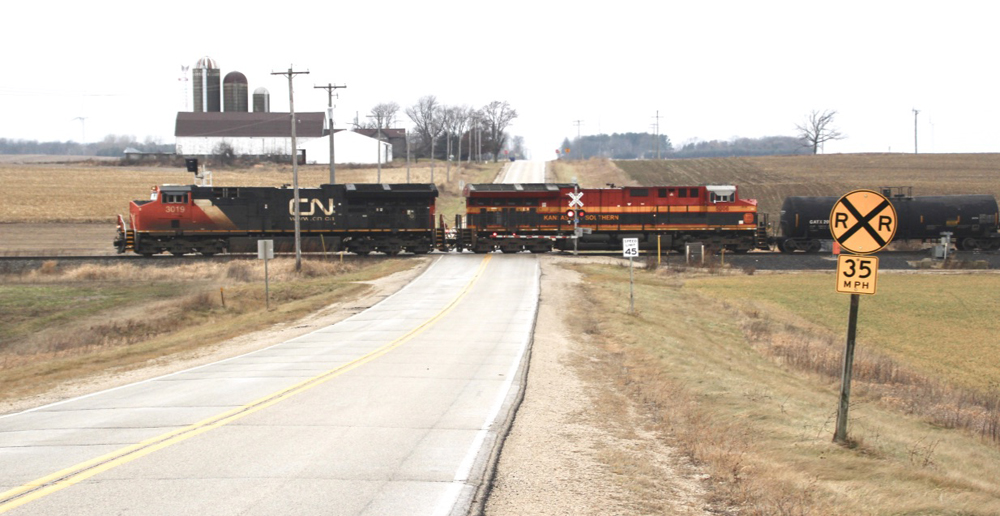
CN sought to gain merger approval under the board’s untested and far tougher “new” review rules. And it asked the board for permission to put KCS into a voting trust, a structure that allows shareholders to receive their cash and shares in the new company at the start of the merger review process.
Creel said there was no reason to sweeten his railroad’s bid for KCS because CN’s offer was so anti-competitive that it would never make it out of the starting gate. CP’s deal with KCS was ironclad, Creel insisted, and CN’s was so fraught with regulatory risk that it was “unattainable,” a “fantasy,” and “fool’s gold.”
As CP and CN traded barbs over their merger proposals and rounded up support from shippers, KCS scheduled an Aug. 19 meeting where shareholders would vote on the CN merger deal.
Ahead of the shareholder vote, CP boosted its offer to $31 billion so that KCS investors would have an alternative to consider. But KCS postponed the meeting to await an STB decision on CN’s request to put KCS into a voting trust.
Then came the bombshell: The STB on Aug. 31 rejected the CN-KCS voting trust, saying it was not in the public interest. Absent the voting trust, it would be nearly impossible for CN to acquire KCS.
KCS accepted CP’s offer on Sept. 15, ending the five-month contest.
CP and KCS went on to file their merger application on Oct. 29. The massive filing with the STB outlines Canadian Pacific Kansas City’s growth projections, including a near tripling of traffic on CP’s former Milwaukee Road lines leading to Kansas City and on the KCS main from K.C. to the Laredo, Texas, gateway.
The STB is expected to rule on the merger by late 2022.
Fallout for CN

TCI Fund Management, the London-based firm that holds $4 billion worth of CN shares and is the railway’s second-largest investor, in May urged CN to drop its bid for KCS, citing the regulatory risk. TCI also said it would ask for the resignation of Ruest and CN Chairman Robert Pace if the railway’s KCS bid failed.
After the Aug. 31 STB ruling, TCI ripped CN’s management in a presentation posted to its website and in a scathing letter to the railway’s board. CN had lost operational discipline, TCI claimed, and needed to renew its focus on running a lean, reliable, and efficient railroad.
TCI asked for a special shareholder meeting where investors could consider its proposed slate of four directors. And the fund proposed that CN hire its former chief operating officer, Jim Vena, to replace Ruest.
CN responded in September with a plan to cut costs, reduce capital spending, and raise revenue to reduce the railway’s operating ratio to 57% in 2022. And as CN announced earnings in October, Ruest announced he would retire in January. CN expects to name a successor in January.
Additional News Wire reading:
“Canadian Pacific announces deal to buy Kansas City Southern,” March 20, 2021.
“Canadian Pacific, Kansas City Southern merger to redraw Class I map,” March 21, 2021.
“Canadian National announces competing bid for Kansas City Southern,” April 20, 2021.
“Canadian Pacific, Canadian National weigh in on approval of CP voting trust …,” May 6, 2021.
“Kansas City Southern selects Canadian National as merger partner,” May 21, 2021.
“Canadian Pacific sweetens offer for KCS, cites regulatory risk …,” Aug. 10, 2021.
“Federal regulators reject CN plan to put KCS in voting trust,” Aug. 31, 2021.
“Analysis: Merger hopes dashed, CN now faces fierce backlash,” Sept. 2, 2021.
“Kansas City Southern moves toward merger agreement with Canadian Pacific,” Sept. 4, 2021.
“Canadian National drops pursuit of KCS …,” Sept. 15, 2021.
“CP CEO Keith Creel talks historic KCS merger …,” Sept. 20, 2021.
“CP and KCS project dramatic rise in train counts,” Nov. 2, 2021.
Previously:
News Wire Top 10: The runners up.
Top 10, No. 9 (tie): The STB and Wall Street.
Top 10, No. 9 (tie): Amtrak sidelines equipment, turns away revenue.
Top 10, No. 8: Climate challenges.
Top 10, No. 7: Railroad crew shortages.
Top 10, No. 6: Battery-electric and hydrogen locomotives.
Top 10, No. 5: Amtrak spars with CSX, NS over Gulf Coast service.
Top 10, No. 4: East Broad Top’s revival continues.
Top 10, No. 3: A snarled supply chain.
Top 10, No. 2: Amtrak’s infrastructure-bill funding.






